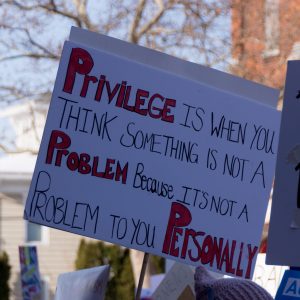 TORONTO — Neuroscience professor Mark Gluck has been working for seven years to bridge the gap between Israeli and Palestinian doctors and scientists in his field.
TORONTO — Neuroscience professor Mark Gluck has been working for seven years to bridge the gap between Israeli and Palestinian doctors and scientists in his field.
Members of the Palestinian team for Parkinson’s studies in the West Bank are, from left, Al Quds University neurology professor Adel Misk, Al Quds medical student Mohammad Herzallah, Rutgers University-Newark professor Mark Gluck, Rutgers postdoctoral fellow Ahmed Moustafa, and Al Quds medical students Samer Abdel Razeq and Lara Al-Dweib.
Gluck, professor of neuroscience at Rutgers University-Newark and co-director of the Rutgers Memory Disorders Project, has been an active partner with the Hebrew University of Jerusalem and Al-Quds University medical school in east Jerusalem in setting up joint brain research exchanges and conferences – a mission he discussed in Toronto last month at an event co-hosted by the Maimonides Society of UJA Federation of Greater Toronto and Young Health Professionals.
Gluck, along with Hagai Bergman, professor of neuroscience at Hebrew U, spearheaded the first international scientific conference hosted by the Israeli and Palestinian universities in June 2005. The landmark event focused on interdisciplinary approaches to understanding Parkinson’s disease and took place on both campuses.
While the conference brought together more than 200 researchers and physicians from Israel, the West Bank, Jordan, England, France, Canada and the United States, Gluck said science was not his only focus. The three-day program was his symbolic response to the increase in anti-Israeli boycotts in academia at the time.
The boycott movement began in Britain in 2002 to protest Israel’s treatment of Palestinians. More than 120 scientists and scholars from across Europe urged a ban on educational and cultural links with the Jewish state.
“I feel a strong connection with Israel, and when I first heard about the boycotts, it offended me twice over,” Gluck said. “These are my fellow Jews. They’re also my fellow scientists. They’re my brethren. So my feeling was that Rutgers could to do something about this by organizing an international conference in Israel with leading scientists.”
Gluck said the initiative exceeded his expectations, as he did not think his team would be able to get the Palestinians involved as partners. He said the conference allowed Rutgers to improve Israel’s relationship with the Arab world, which is crucial to the nation’s long-term strength.
The 2005 conference was not a one-time thing, Gluck said, as a second international convention focusing on Alzheimer’s disease was held in May 2008. Gluck organized the three-day event, co-hosted by Rutgers-Newark, Hebrew U and Al-Quds University, with his colleagues in Israel and the West Bank.
Gluck was one of over 50 scholars, scientists and students from the United States and Europe who shared findings at the conference, which provided another chance for Israelis and Palestinians to collaborate, he said.
More than 20 Palestinians attended the sessions at Hebrew U, and though some already had permits to work in Israeli hospitals, Gluck said he spent months arranging entry for over a dozen Palestinians from the West Bank who would normally be denied easy access.
Gluck said one of the main goals of the 2008 conference was to set up a new Middle East Collaborative Research Consortium on Brain Disorders to benefit the entire region. He said the opportunity was “a novel one for Israeli-Arab co-operation [that] promotes Israel as a valued neighbour for regional health care.”
Gluck said he began to build trust by meeting with families of the Palestinian students, but with the outbreak of war in Gaza in December 2008, communication between the Arabs and the Jews was shut down. “The program was put on hold due to politics and discomfort,” he said.
In response to the conflict, Gluck and Dr. Adel Misk, a leading Palestinian neurologist affiliated with Al-Quds, established the Rutgers-Israel Biomedical Research and Education Exchange. The project has grown into a program for study and collaborative research, bringing Rutgers students and faculty to Israel and Israeli scientists and students to Rutgers. Gluck said certain initiatives have also provided opportunities for Rutgers students to participate in collaborative programs with Palestinian universities.
In future efforts, Gluck said Rutgers will assist in the establishment of a Palestinian Neurosciences Institute at Al-Quds University. Housed on the Abu Dis campus, it will provide training and research support for Palestinian medical students, doctors and scientists.
The Palestinian Neuro-sciences Institute will also administer a broader Palestinian Neurosciences Society, open to Palestinian scientists, doctors and students worldwide. The society will apply for recognition from international organizations and seek representation at global conferences.






